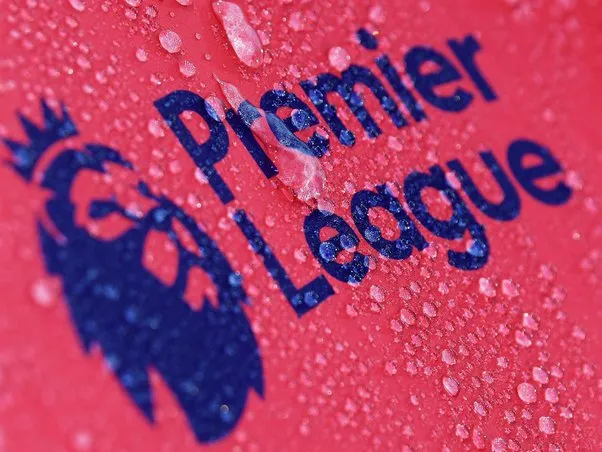The Premier League has undergone a remarkable transformation over the past decade, cementing its position as one of the most prestigious and captivating football leagues in the world. From the introduction of new technologies to the rise of global superstars, the Premier League has evolved to meet the ever-changing demands of the modern game. This article delves into the key areas that have shaped the league’s development, exploring the factors that have contributed to its continued success and the challenges it faces as it looks to the future.
The Influx of Global Talent

The Shift Towards Internationalization
The Premier League has long been renowned for its ability to attract the world’s best players, and this trend has only intensified in recent years. As the league’s global reach has expanded, so too has the diversity of its playing talent. Teams have increasingly sought to bolster their squads with players from across the globe, bringing in a wealth of different styles, perspectives, and experiences.
| Player | Nationality | Team |
|---|---|---|
| Kevin De Bruyne | Belgium | Manchester City |
| Mohamed Salah | Egypt | Liverpool |
| Virgil van Dijk | Netherlands | Liverpool |
- The Premier League has seen a significant influx of international players, with teams actively seeking out the best talent from around the world.
- This has led to a more diverse and competitive league, with players from different backgrounds and playing styles contributing to the overall quality of the game.
- The internationalization of the Premier League has also had a positive impact on the development of the sport globally, as the exposure of international players has inspired and motivated aspiring footballers in their home countries.
The Rise of Global Superstars
Alongside the increased internationalization of the league, the Premier League has also witnessed the emergence of a new generation of global superstars. These players have not only captivated audiences on the pitch but have also transcended the boundaries of the sport, becoming household names and cultural icons.
- Players like Cristiano Ronaldo, Lionel Messi, and Kylian Mbappé have become synonymous with the Premier League, attracting legions of fans from around the world.
- The presence of these global superstars has helped to elevate the profile of the Premier League, drawing in new audiences and generating vast sums of revenue through sponsorships, merchandise sales, and media rights.
- The rise of these players has also had a significant impact on the development of the game, as their skillful and innovative play has inspired a new generation of aspiring footballers.
The Changing Landscape of Fan Engagement
As the Premier League has become more global, the ways in which fans engage with the sport have also undergone a transformation. The league has embraced digital and social media platforms, providing fans with unprecedented access to their favorite teams and players.
- The Premier League has leveraged platforms like Twitter, Instagram, and TikTok to connect with a younger, more tech-savvy audience, offering behind-the-scenes content, player interviews, and real-time updates.
- The league has also invested in innovative fan engagement initiatives, such as virtual match day experiences and interactive digital content, allowing fans to engage with the sport in new and immersive ways.
- This shift towards digital fan engagement has helped to expand the Premier League’s reach, attracting a new generation of supporters and solidifying its position as a global cultural phenomenon.
The Rise of Data-Driven Decision-Making

The Increasing Importance of Analytics
In recent years, the Premier League has witnessed a growing emphasis on data-driven decision-making, with teams and clubs embracing the power of analytics to gain a competitive edge.
| Key Performance Indicators | Definition |
|---|---|
| Expected Goals (xG) | A metric that measures the quality of a shot based on various factors, such as the location and angle of the shot. |
| Passes per Defensive Action (PPDA) | A measure of a team’s defensive intensity, based on the number of passes they allow their opponents to make before attempting a defensive action. |
| Possession-Adjusted Goals (PAdG) | A statistic that takes into account a team’s possession percentage to provide a more accurate measure of their goal-scoring efficiency. |
- Teams are increasingly relying on advanced analytics to inform their recruitment strategies, player development, and in-game tactics, using data to identify and target the most promising talent.
- The Premier League has also embraced the use of technology, such as player tracking systems and video analysis tools, to provide coaches and analysts with a deeper understanding of team and player performance.
- This data-driven approach has led to a more informed and strategic decision-making process, as teams strive to gain a competitive edge in an increasingly crowded and competitive landscape.
The Impact of Analytics on Coaching and Tactics
The rise of data-driven decision-making has also had a significant impact on the way in which coaches and teams approach the game. Managers are increasingly leveraging analytics to develop more sophisticated and effective tactical approaches.
- The use of analytics has enabled coaches to identify and exploit the weaknesses of their opponents, developing tailored strategies that capitalize on their team’s strengths and the opposing team’s vulnerabilities.
- Data-driven insights have also informed the way in which coaches approach player development, with a greater emphasis on individual skill-building and specialized training programs.
- The integration of analytics into the coaching process has led to more nuanced and adaptable tactics, as teams seek to stay one step ahead of their rivals in an ever-evolving tactical landscape.
The Challenges of Data Interpretation
While the Premier League’s embrace of analytics has brought numerous benefits, it has also introduced new challenges in terms of data interpretation and application.
- The sheer volume of data available can be overwhelming, and teams must carefully navigate the complexities of data analysis to extract meaningful insights.
- There is also a risk of over-reliance on data, with teams potentially overlooking important qualitative factors or failing to account for the human element of the game.
- Effective data interpretation requires a multidisciplinary approach, with teams drawing on the expertise of data scientists, coaches, and sports psychologists to develop a comprehensive understanding of performance.
The Evolution of Tactics and Playing Styles

The Tactical Revolution
The Premier League has witnessed a tactical revolution in recent years, with teams and coaches embracing a more diverse range of playing styles and tactical approaches.
- The success of teams like Manchester City and Liverpool, who have implemented possession-based, high-pressing tactics, has inspired a shift away from the traditional “long ball” approach that once dominated the league.
- Coaches have become more adept at adapting their tactics to the specific strengths and weaknesses of their players, creating more dynamic and fluid systems of play.
- The Premier League’s increased focus on tactical innovation has led to a more engaging and unpredictable brand of football, with teams constantly seeking to outmaneuver their opponents.
The Emergence of Positional Fluidity
Alongside the tactical revolution, the Premier League has also seen the rise of positional fluidity, with players increasingly expected to adapt their roles and responsibilities throughout the course of a match.
- Teams are prioritizing players who can seamlessly transition between different positions, offering greater flexibility and adaptability in their overall game plan.
- This shift towards positional fluidity has led to the development of more versatile and well-rounded players, who can contribute to the team’s success in a variety of ways.
- The ability to adapt and respond to changing game situations has become a critical skill in the modern Premier League, as teams seek to gain an edge over their opponents through their tactical flexibility.
The Impact of Technology on Tactics
The integration of technology into the game has also had a significant impact on the tactical evolution of the Premier League. From the use of video analysis to the implementation of performance tracking systems, teams are leveraging a wide range of tools to enhance their understanding of the game.
- Video analysis has enabled coaches to break down and dissect the opposition’s tactics, allowing them to identify and exploit weaknesses in their opponents’ approaches.
- Performance tracking systems have provided teams with a wealth of data on player movement, positioning, and decision-making, informing the development of more sophisticated and targeted tactical strategies.
- The use of technology has also facilitated more effective communication and collaboration between coaches, players, and support staff, enabling real-time adjustments and in-game adaptations.
The Changing Landscape of Club Ownership and Investment

The Rise of Foreign Ownership
Over the past decade, the Premier League has seen a significant increase in the number of clubs owned by foreign investors and consortia. This shift in ownership has had a profound impact on the league’s landscape.
- The influx of foreign investment has brought increased financial resources and access to global networks, allowing clubs to attract top talent and invest in infrastructure and fan engagement initiatives.
- The diversity of ownership groups has also introduced new management styles and strategic approaches, with clubs embracing a more global outlook and a focus on international expansion.
- However, the rise of foreign ownership has also raised concerns about the preservation of the league’s traditional values and the potential for conflicts of interest, as owners seek to balance their global ambitions with the needs of their local fan bases.
The Emergence of Mega-Rich Owners
Alongside the rise of foreign ownership, the Premier League has also witnessed the emergence of ultra-wealthy individuals and consortia who have invested heavily in their club’s success.
- Clubs like Manchester City and Newcastle United have been transformed by the infusion of vast sums of money from their owners, allowing them to compete at the highest levels of the game.
- This influx of wealth has had a significant impact on the competitive landscape, with these well-resourced clubs able to outspend their rivals in the transfer market and attract the best talent.
- The presence of mega-rich owners has raised concerns about the long-term sustainability of the league, as the financial disparities between clubs continue to grow and the risk of financial instability and regulatory breaches increases.
The Impact on Player Wages and Transfer Fees
The changing landscape of club ownership and investment has also had a profound impact on the financial dynamics of the Premier League, particularly in terms of player wages and transfer fees.
| Player | Transfer Fee | Wages |
|---|---|---|
| Paul Pogba | £89.3 million | £290,000 per week |
| Virgil van Dijk | £75 million | £180,000 per week |
| Kepa Arrizabalaga | £71.6 million | £150,000 per week |
- The influx of wealth into the Premier League has driven up player salaries, with the top clubs offering increasingly lucrative contracts to attract and retain the best talent.
- Similarly, transfer fees have soared, as clubs compete fiercely to secure the services of the most sought-after players, often breaking records in the process.
- This financial arms race has raised concerns about the sustainability of the league’s business model, as the costs of maintaining a competitive squad continue to escalate.
The Impact of the COVID-19 Pandemic

The Disruption to the 2019-20 Season
The outbreak of the COVID-19 pandemic in 2020 had a profound impact on the Premier League, leading to an unprecedented disruption to the 2019-20 season.
- The league was forced to suspend play for several months, as the global health crisis took its toll and governments implemented lockdown measures to curb the spread of the virus.
- When play resumed, it did so in a drastically altered landscape, with matches being played behind closed doors and teams having to adapt to a condensed fixture schedule.
- The financial implications of the pandemic were also significant, with clubs facing a significant loss of revenue from ticket sales, hospitality, and other match-day activities.
The Lasting Effects on the League’s Finances
The financial impact of the COVID-19 pandemic has continued to be felt by Premier League clubs, with the long-term implications of the crisis still unfolding.
- Reduced matchday revenue, combined with the loss of sponsorship and broadcasting deals, has put significant strain on club finances, leading to cost-cutting measures and a slowdown in transfer activity.
- The pandemic has also accelerated the shift towards digital fan engagement, as clubs have been forced to find new ways to connect with their supporters in the absence of live events.
- As the league and its clubs navigate the ongoing challenges posed by the pandemic, the focus has turned to ensuring the long-term sustainability of the Premier League’s business model and identifying new revenue streams to offset the financial losses.
The Impact on Player Welfare and Mental Health
Beyond the financial implications, the COVID-19 pandemic has also had a significant impact on the mental health and well-being of players and staff within the Premier League.
- The isolation and uncertainty created by the pandemic, combined with the intense demands of the sport, have taken a toll on the mental and emotional resilience of many players.
- Clubs have had to place a greater emphasis on supporting the mental health of their players, providing access to counseling, mental health resources, and wellness programs.
- The pandemic has also highlighted the need for a more holistic approach to player welfare, with the league and its stakeholders recognizing the importance of prioritizing the physical and mental well-being of the athletes.
The Future of the Premier League
Sustainability and Environmental Responsibility
As the Premier League looks to the future, one of the key challenges it faces is the need to address issues of sustainability and environmental responsibility.
- The league and its clubs have faced increasing pressure to reduce their carbon footprint and implement more eco-friendly practices, from the construction of stadiums to the transportation of players and staff.
- Initiatives such as the use of renewable energy, the reduction of single-use plastics, and the promotion of sustainable fan engagement have become increasingly important in the league’s long-term planning.
- By embracing a more sustainable and environmentally conscious approach, the Premier League can not only reduce its environmental impact but also set an example for other sports leagues and industries to follow.
The Expansion of Global Reach and Audience
The Premier League’s global popularity and appeal have continued to grow, and the league is poised to further expand its reach and audience in the years to come.
- The league’s investment in international broadcasting deals and digital platforms has allowed it to connect with fans around the world, fostering a truly global fanbase.
- Initiatives such as the Premier League’s international academies and the expansion of the league’s brand into new markets have contributed to the league’s growing international presence.
- As the Premier League continues to evolve and adapt to the changing landscape of the sport, its ability to maintain and grow its global audience will be a key factor in its long-term success.
The Challenges of Balancing Tradition and Innovation
As the Premier League looks to the future, it will need to navigate the delicate balance between preserving the league’s storied traditions and embracing the necessary changes and innovations that will shape its ongoing development.
- The Premier League’s rich history and the loyalty of its long-standing fan base are integral to its identity, and the league must ensure that any changes or innovations do not alienate or undermine these core elements.
- At the same time, the Premier League must be willing to adapt and innovate in order to remain competitive and relevant in the rapidly evolving world of global sports.
- This balance will require the league and its stakeholders to engage in thoughtful and collaborative decision-making, ensuring that the Premier League’s evolution is guided by a clear vision that resonates with both its traditional fans and its rapidly expanding global audience.
Conclusion
The Premier League’s transformation over the past decade has been nothing short of remarkable. From the influx of global talent and the rise of data-driven decision-making to the evolution of tactics and the changing landscape of club ownership, the league has demonstrated its ability to adapt and innovate in the face of a rapidly changing sports landscape.
As the Premier League looks to the future, it will need to continue to navigate the complex challenges and opportunities that lie ahead. From addressing issues of sustainability and environmental responsibility to expanding its global reach and balancing tradition with innovation, the league’s success will depend on its ability to think strategically and make bold, forward-thinking decisions.
Through it all, the Premier League’s enduring appeal and the passion of its loyal fan base will remain the driving forces behind its continued success. As the league embarks on the next chapter of its evolution, the world will be watching, eager to witness the unfolding of this captivating and ever-evolving story.



